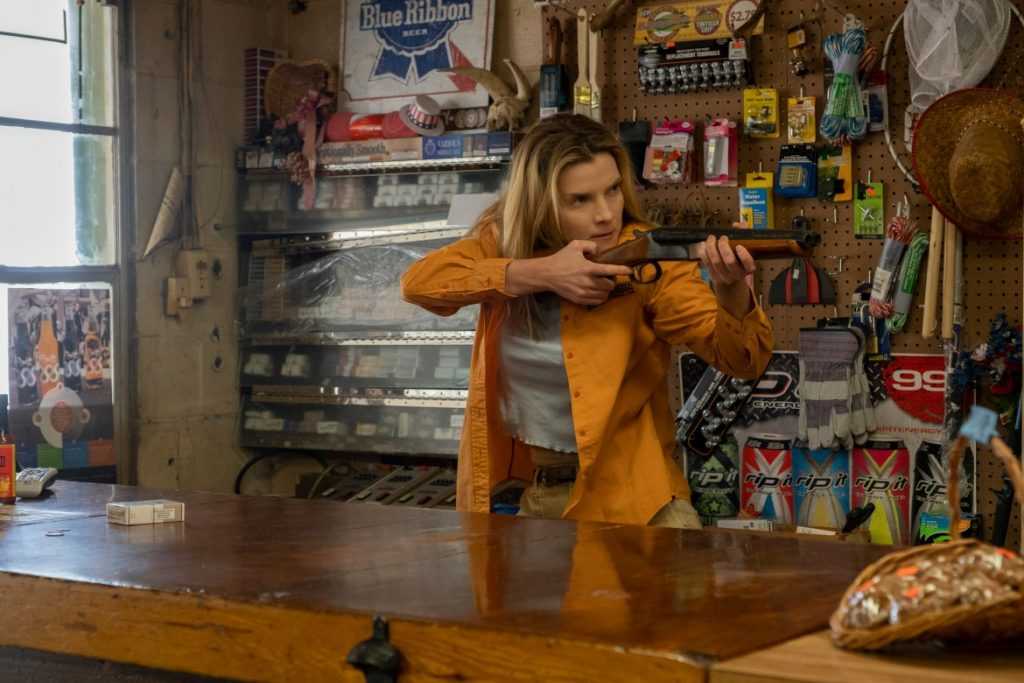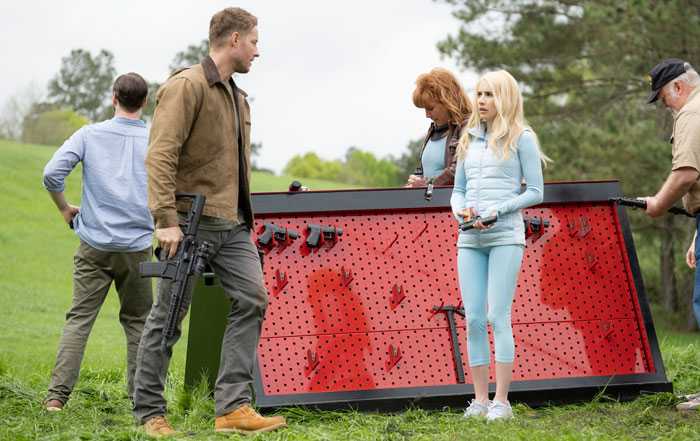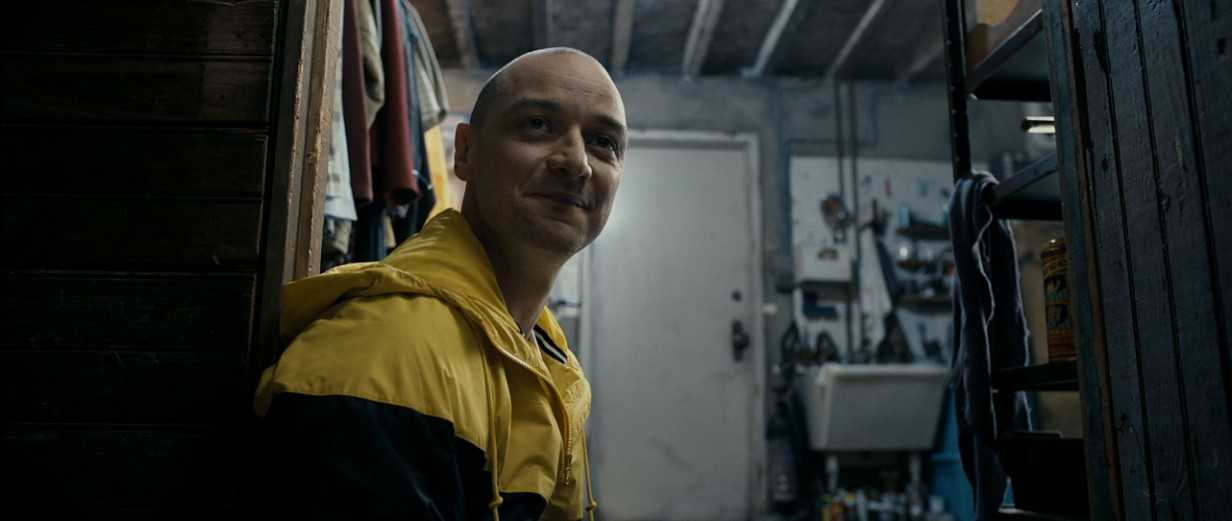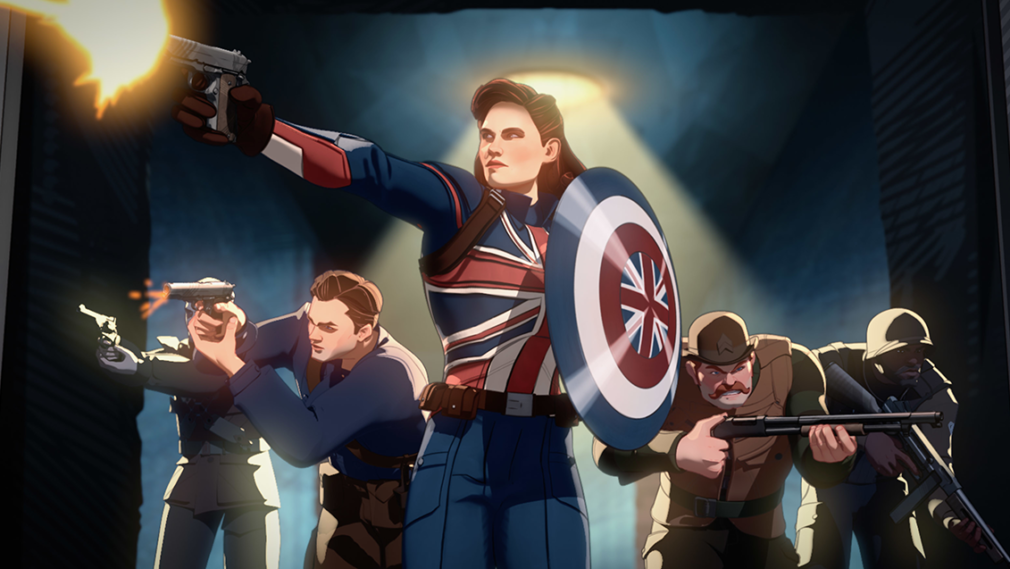Craig Zobel’s 2020 foray has crept up silently, upon our doorsteps without us ever stopping to notice its release. The Hunt seemingly came from nowhere, appearing to materialise one day through word of mouth carrying simultaneous buzz of outrage and exhilaration.
Betty Gilpin leads the chaos as Crystal. She is smart, mysterious and has wit in buckets, holding no prisoners in her quest to uncover the root of why she and twelve strangers have awoken to a game of bloody battle. The strangers range from Emma Roberts to Ethan Suplee to Wayne Duvall, all who have varying degrees of relevance in her journey to expose the founders of this game. Each ensemble castmate is as eccentric as the next, fusing perfectly with Gilpin’s more subtle demeanour who utilises every muscle in her body to convey emotion as opposed to dialogue.

There’s no hiding the fact that writers Nick Cuse and Damon Lindelof were trying to produce a political commentary within their narrative. The twelve victims expose themselves as they spurt invectives or mock “woke” culture, aside from Crystal who remains seemingly neutral throughout, sticking to her inscrutable demeanour.
There’s little to be said about The Hunt that won’t spoil its various twist and turns, but the compelling debate won’t come from the narrative, it will instead manifest in its central argument of who is right and who is wrong. Its relentless attack on both the left and the right is wildly comical, utilising buzzwords and phrases we’re well acquainted with such as “snowflake” and “blaming the victim”. Beyond its depredation of an individual’s moral compass, it lacks the heart it requires to pack a powerful punch. Without a clear standpoint, aside from neutrality, it loses itself in a descent of madness, which assumedly is its intent.

However, this produces a complex and confusing stance as it tries to demonstrate intellect with references to old fables and Orwellian ideas. It’s unclear whether the marriage of Zobel’s direction and Cuse and Lindelof’s screenplay fully materialise. It somewhat acknowledges its ridiculousness, playing intricately with stereotypes, flirting ludicrously close to the line of political correctness, while also condemning itself.
Perhaps both comical and shocking is the fact the film sits at a Fifteen BBFC rating, it speaks to the ever-changing world we live in and how we no longer need to censor sensitive discussion. Both adults and teens will be familiar with debates the movie tackles and will have indulged in similar conversations from time to time.
In any case, it’s tense, it’s outrageously entertaining, and its attempt to be subversive occasionally pays off. It does little to assist an essential and worthwhile conversation, but the ninety-minute break from divisive global politics before suiting back up for battle is welcome.
Rating



